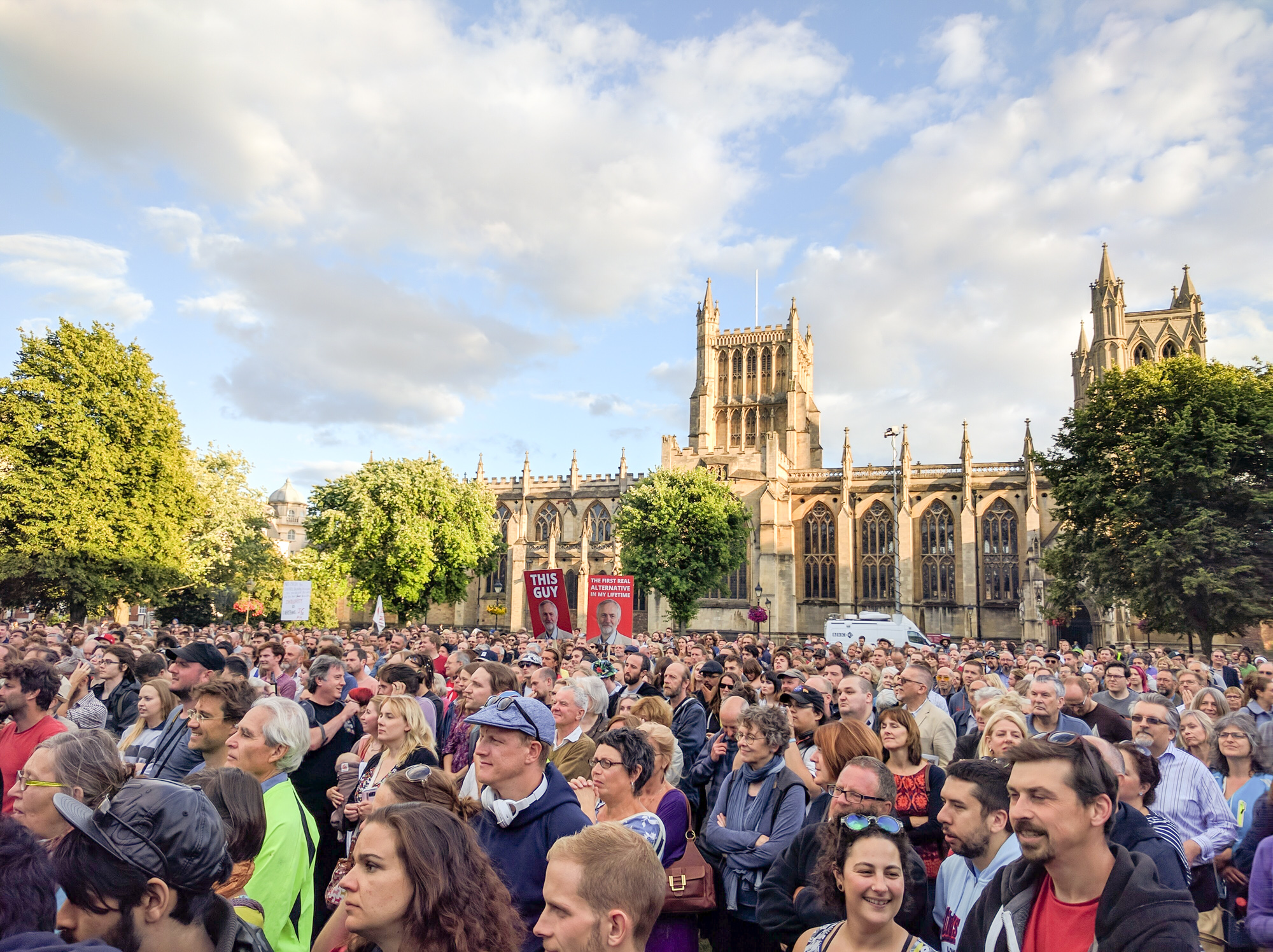Building a Democratic Socialist Movement Means Labour Members Must Decide Their Own Candidates
by James McAsh
23 October 2019

Labour’s national executive committee (NEC) has implemented a ‘streamlined’ process for selecting parliamentary candidates in the run up to the snap general election. The intention appears to be to select parliamentary candidates quickly, and to all-but-guarantee they are the NEC’s preferred choices. Many appear to be strong leftwing candidates; others seem to just have friends in high places. But even if they were all perfect, the end would not justify the means.
The issue is not about fairness or the hurt feelings of excluded candidates. What is at stake is whether Labour’s strategy is to build a democratic and fighting movement capable of realising meaningful change, or whether Labour thinks this can be delivered from above by a handful of leftwing MPs. It is not worth sacrificing democracy when it is the strength of the movement outside of parliament that determines Labour’s strength inside it.
Ordinarily, a constituency Labour party (CLP) would elect a selection committee to oversee the selection process. The CLP would invite applications from potential candidates and invite branches to make nominations. From here it would select a ‘longlist’ of candidates to interview and those successful at interview stage would be put on a ‘shortlist’ from which members can choose in a final vote. Various rules are in place to ensure that popular candidates are guaranteed inclusion on either the longlist or shortlist.
The NEC’s streamlined process condenses this procedure from ten weeks down to two. But more importantly, it also gives more power to the NEC at the expense of local parties. In the streamlined process, the NEC has sole responsibility for creating the longlist, and then plays a major role in deciding the shortlist. Activists from all sections of the party have been worried that this might lead to popular local candidates being excluded to make way for favoured ‘big names’. Longlists have now been drawn up for the seats, and shortlists for many too, and these suspicions appear to have been confirmed.
In Nottingham East, branches had already made nominations before the NEC process was introduced. Despite receiving a number of nominations from party branches and unions, popular leftwing candidate Louise Regan was missed off the shortlist. 100 local members – alongside the four successfully shortlisted candidates – have signed a petition calling for her to be added. Similarly, the Enfield North the longlist was drawn up with no local left candidates. One candidate, the local councillor Tolga Aramaz, had already received more nominations than any other and was still missed off. Nottingham East and Enfield North are not outliers – similar stories exist in CLPs across the UK.
Social change needs a democratic movement.
Does this matter? We might ask: if the NEC process will deliver leftwing MPs then is it not worth bruising some egos? The movement is bigger than any one person, so surely these local candidates should just shut up and accept the decision.
Unfortunately the issue goes beyond personal gripes. The NEC strategy is short-sighted and will ultimately undermine the strength of the movement. It may result in a slightly more leftwing parliamentary Labour party, but it is not worth it if it comes at the expense of a democratic and fighting movement. In fact, it stands at odds with the central tenet of socialist politics: social change is built from below by working people organising collectively; it is not gifted from above.
A sham selection process leaves us unprepared for future challenges, and the election of a radical Labour government will mark the beginning, not the end, of such challenges. The political and economic establishment will do everything it can to prevent the implementation of a transformative programme. The media will ramp up its vicious attacks. The civil service will be oscillate between inaction and sabotage. Major capitalists will blackmail the government with threats of job losses and product shortages. And that’s before we even consider the reaction of hostile foreign states and international institutions.
What lessons can be learned from history about how to respond to this? A crystal clear one emerges: socialists will only win with the backing of a mobilised popular movement. This means huge numbers of people who can work collectively to respond to challenges around them and push a socialist agenda forward. Building such a movement means devolving leadership to the grassroots. It means putting trust and faith in the collective. It means the leadership having enough respect for the movement to let it make its own decisions democratically.
Democratic candidate selections are the bare minimum. They afford Labour’s membership the time and space to consider its political priorities and strategies. They provide practical training in how to run campaigns, how to build unity across factional divides, and how to convince people of socialist ideas. The candidate benefits, too: any leftwing MP will face intense scrutiny and pressure – their ideas and strategies should be tested first in the more friendly atmosphere of the party.
The risk of the NEC’s manoeuvres is that Labour ends up with candidates who are not properly tested and a membership that feels disempowered, disrespected and demobilised. This is already evident from the angry reactions of many members. But more damaging still might be the opposite response. There is a risk that the lesson some members may take from this is that they can rely on the NEC to fight for socialism on their behalf. This is precisely the wrong lesson for our leadership to teach and can only lead to a weaker movement.
We cannot stitch-up our way to socialism. Labour’s top priority must be to build a movement. And that means trusting the membership to make its own decisions.
James McAsh is a primary school teacher, a Labour councillor and an activist in the National Education Union.